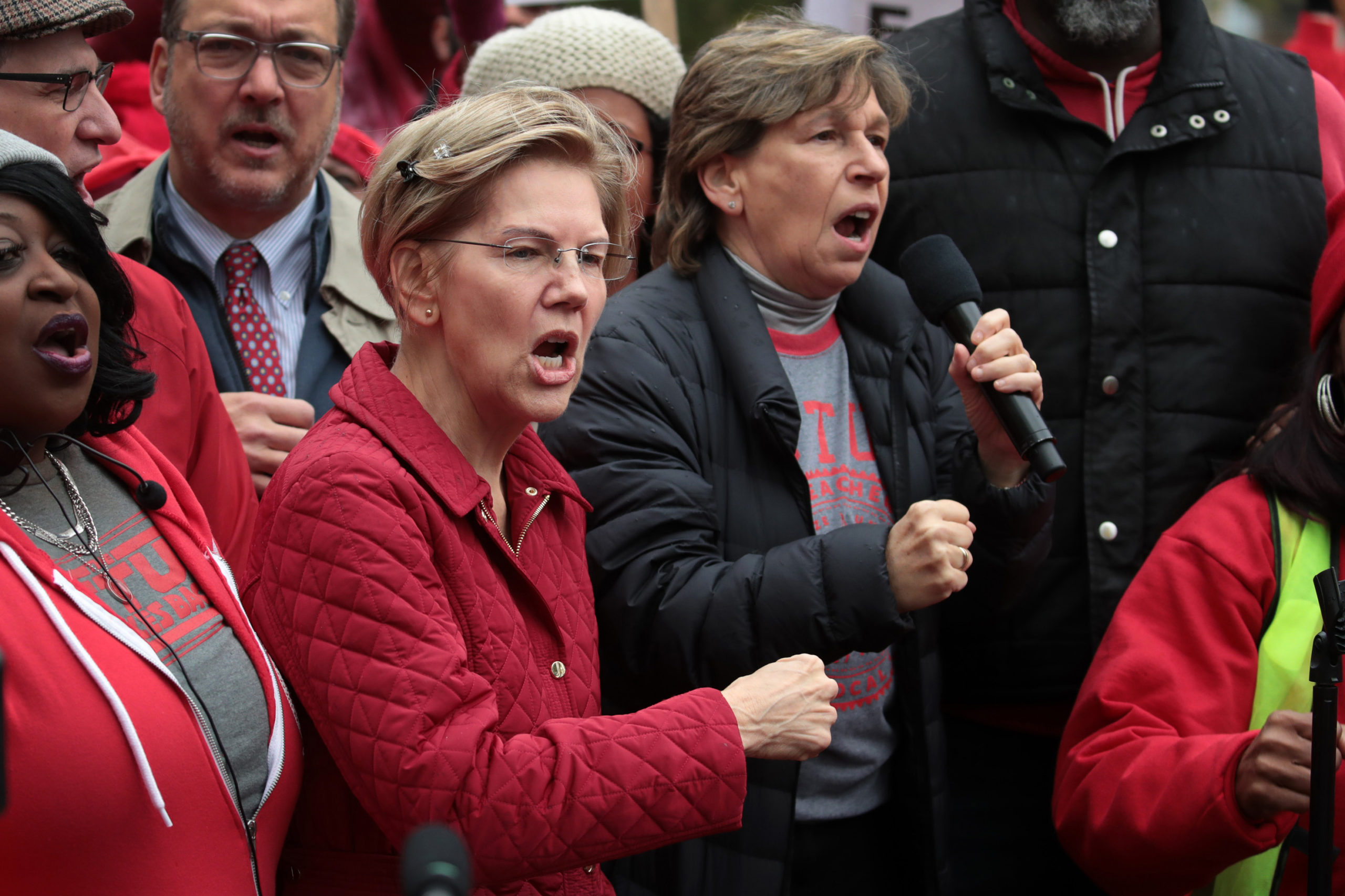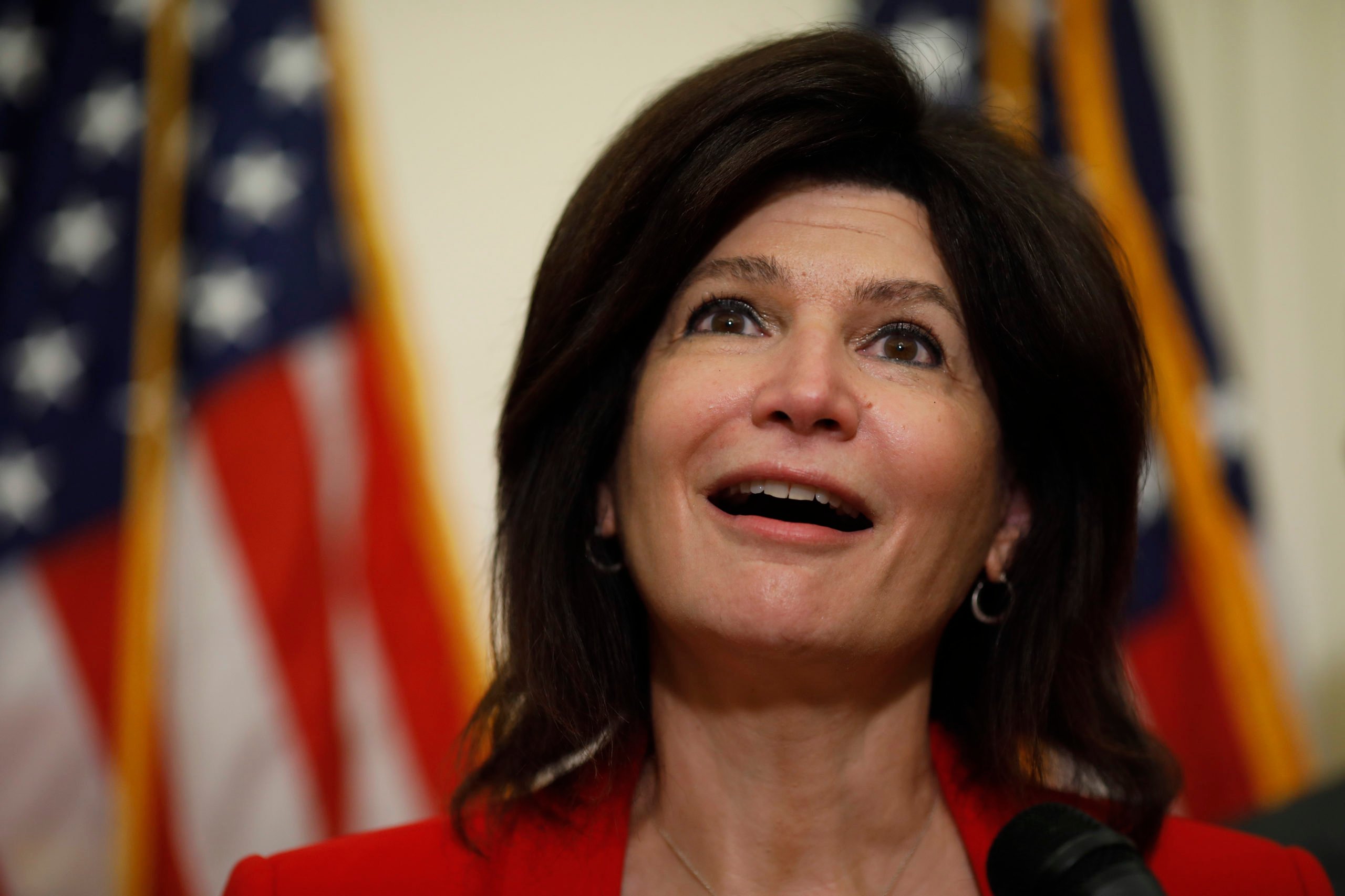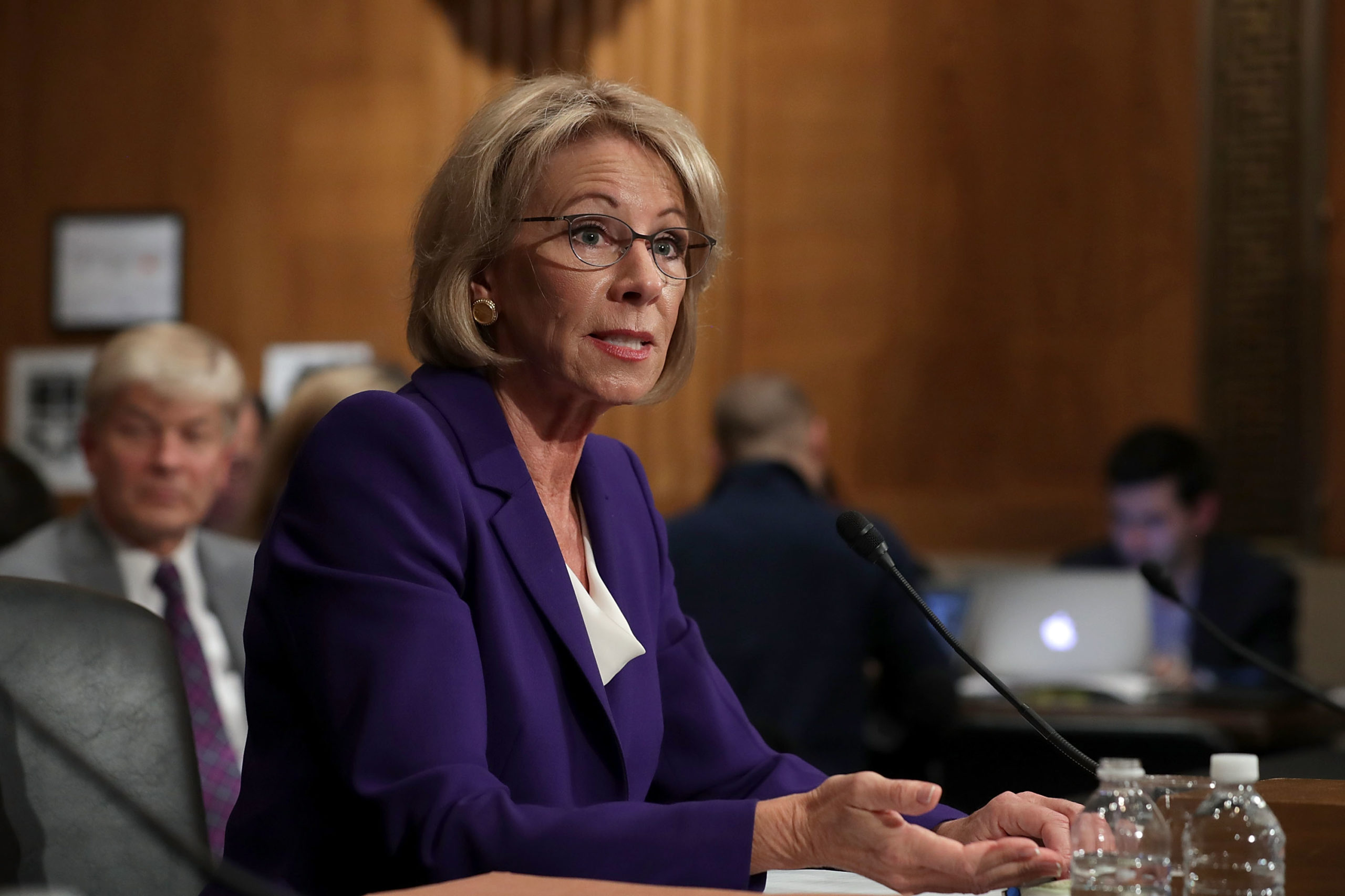Having been declared President-elect earlier this month despite the Trump campaign’s legal challenges, Joe Biden is now assembling a team of advisers and potential cabinet members. One policy area where he could radically change direction from the past four years is education.
Democrats fiercely opposed the nomination of Education Secretary Betsy DeVos in early 2017 due to her criticism of public education and personal investments in charter schools, NBC News reported. Her tenure as secretary was equally opposed by Democrats as she tore up Obama-era guidelines and promoted school choice, according to NPR.
Biden pledged early in his campaign to appoint a teacher as education secretary, CNN reported. “First thing I will do is make sure that the secretary of education is not Betsy DeVos, it is a teacher,” he said at a National Education Association forum in July 2019.
WATCH:
Developments within Biden’s transition team have led some to speculate that Biden will not only appoint a teacher but also someone with close ties to the teachers unions. American Federation of Teachers (AFT) President Randi Weingarten and former National Education Association (NEA) President Lily Eskelsen Garcia are considered to be frontrunners, according to Politico.
Weingarten heads the AFT, the second largest teachers union in the country, and was a high school history teacher. She is well regarded progressive circles and backed Democratic Massachusetts Sen. Elizabeth Warren’s presidential bid. Her nomination would almost certainly be fiercely contested by Senate Republicans on both policy and political grounds, Politico reported.

Sen. Elizabeth Warren (D-MA) and American Federation of Teachers president Randi Weingarten visit with striking Chicago teachers (Scott Olson/Getty Images)
Garcia is an elementary school teacher and served as president of the NEA, the nation’s largest labor union. A Utah native, Garcia does not appear to have the same political baggage as Weingarten that would make her nomination hotly contested by Republicans. But she was highly critical of DeVos during her six year tenure as NEA president, according to Deseret News.
Putting forth a nominee who led the teachers unions could have disastrous consequences for public education. Teachers unions have had a stranglehold over public schools for decades and such a nomination would only put their interests first over that of students, Wall Street Journal (WSJ) columnist William McGurn argued in a Nov. 16 op-ed.

Lily Eskelsen Garcia, president of the National Education Association, speaks at a news conference (Aaron P. Bernstein/Getty Images)
The coronavirus pandemic has arguably exposed the way teachers unions protect their own financial and political interests to the detriment of students. (RELATED: Our Kids Are The Hostages — How Teachers Unions Are Using Coronavirus To Try To Line Their Pockets)
Teachers unions have staunchly opposed reopening schools despite a growing scientific consensus that schools do not present a major risk for coronavirus outbreaks. Instead, they have threatened teacher boycotts and demanded concessions that read more like a progressive wish list.
The actions of the Washington Teachers Union shows how these groups are actually harming students. The D.C. public school system was forced to scrap a plan to send 7,000 kids back for limited-in person schooling starting Nov. 9 after resistance from the local teachers union, The Washington Post reported.
While the union celebrated the move as “a big win for the teachers,” thousands of students in the nation’s capital are being deprived of education opportunities. The D.C. school system’s plan was meant to help at-risk students including the homeless, students with special needs and students who lack the resources for online instruction.
The @washingtonpost editorial board is right. When unions win, kids lose. https://t.co/dnNVb1K73h
— Secretary Betsy DeVos (@BetsyDeVosED) November 10, 2020
Biden and his board of coronavirus advisers favor stricter lockdowns continuing restrictions well into the next year, according to City Journal. Having a teachers union leader as education secretary would certainly extend this framework to public schooling, ensuring that schools continue to operate remotely.
Beyond the coronavirus pandemic, four years of a Biden presidency would almost certainly mean rolling back reforms made by DeVos and implementing more progressive guidelines.
The American Council on Education (ACE) signed an open letter Nov. 16 urging Biden to restore a more expansive approach to Title IX. DeVos implemented new guidelines allowing the representative of a student accused of sexual assault to cross-examine his accuser in real time, which progressives staunchly opposed, NPR reported.
The ACE letter also urged Biden to reverse Trump’s executive order on critical race theory barring recipients of federal grants — including universities — from enacting race and gender-based training. Multiple secondary and higher education institutes have incorporated critical race theory and similar progressive ideas, something that Biden’s transition team supports.
Biden’s Education Department would also roll back the Trump administration’s promotion of school choice. Teachers unions have long opposed school choice in favor of more federal investment in public education and nominating a teachers union leader as education secretary would likely shift the department’s priorities away from school choice.

Betsy DeVos testifies during her confirmation hearing (Chip Somodevilla/Getty Images)
Religious education and parochial schools would likely be targeted as well. Despite working with smaller staff and less resources than public schools, parochial schools have been better at fending off the coronavirus and tend to have higher rates of educational attainment, according to the WSJ.
Among the many demands made by teachers unions earlier this year was a moratorium on new charter or voucher programs in favor of federal funding for public schools, NBC News reported. (RELATED: Why Do Teachers Unions Hate Our Kids?)
Center for Education Reform founder Jeanne Allen, who worked in the Reagan Education Department, argued that incorporating teachers union leadership would hinder opportunities for students and keep the power of choice away from parents, all while consolidating the power of the unions and pushing forth left-wing reforms.
Former Union president @Lily_NEA hasn’t tweeted since Nov 7, around same day her name was floated for #EdSec @Transition46 @JoeBiden
— Jeanne Allen (@JeanneAllen) November 24, 2020
“Appointing either Weingarten or Garcia would be the biggest union payback since Jimmy Carter created the Department of Education in 1979,” she told the WSJ. “It’s a sign that the teachers unions now own [Biden] lock, stock and barrel.”


